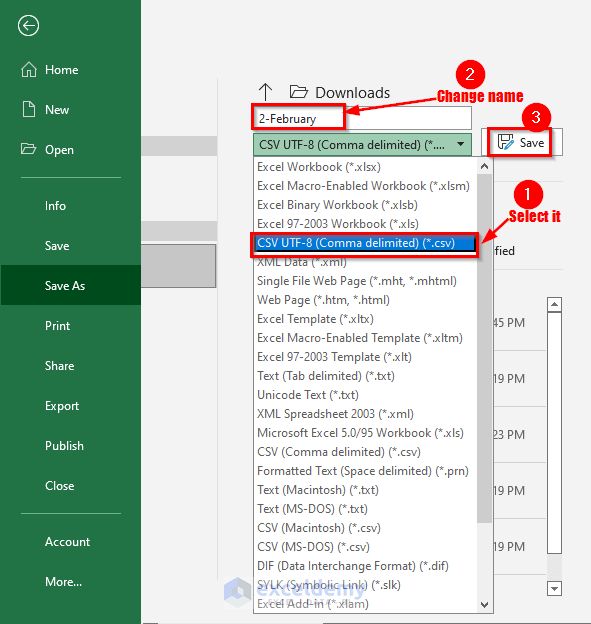5 Ways to Merge Multiple Excel Files into One

Understanding the Need for Merging Excel Files


In today’s digital age, Excel spreadsheets are ubiquitous tools for data analysis and management. However, with the volume of data, it becomes increasingly common to split data into multiple Excel files for organization or ease of handling. Over time, the need arises to consolidate these files into one master document for a comprehensive analysis or presentation. This blog post will delve into five effective ways to merge multiple Excel files into one, ensuring that your data remains organized and easily manageable.
Manual Copy-Paste

The simplest way to merge Excel files is the manual copy-paste method. This technique is most suitable for small datasets:
- Open all the files you wish to merge.
- Select the data in one file, right-click, and choose “Copy.”
- Move to the destination Excel file, select the cell where you want to start pasting, and right-click to “Paste.”
- Repeat the process for each file until all data is combined.
⚠️ Note: This method is time-consuming and prone to errors for large datasets.
Excel’s Consolidate Feature

For a more automated approach, you can use Excel’s built-in “Consolidate” feature, which is excellent for summarizing data:
| Step | Description |
|---|---|
| 1. | Create a new blank workbook where data will be consolidated. |
| 2. | Go to Data > Consolidate. |
| 3. | Choose ‘Function’ (Sum, Average, etc.) and add references from other workbooks by clicking “Browse.” |
| 4. | Ensure ‘Use labels in’ is checked to correctly identify data for consolidation. |

This method is perfect for creating a summary table from multiple data sources.
Using Power Query

Power Query, available in newer versions of Excel, is an advanced tool for data manipulation:
- Open a blank workbook or the workbook where you want to merge data.
- Go to Data > Get Data > From File > From Folder, then select the folder containing your Excel files.
- Power Query will transform the folder into a list of files. Click “Combine” to consolidate the data from these files.
- Power Query will attempt to merge similar columns. You can adjust settings as needed.
🔍 Note: Power Query provides flexibility for transforming and cleaning data before merging, enhancing data quality.
Using VBA Script

VBA (Visual Basic for Applications) scripting can automate the merging process:
Sub MergeWorkbooks() Dim FolderPath As String, FileName As String, wsName As String Dim wb As Workbook, wbDest As Workbook Dim ws As Worksheet, wsDest As Worksheet'Change this to the folder path where your Excel files are located FolderPath = "C:\your\path\to\excels\" 'Open the master workbook where data will be merged Set wbDest = ThisWorkbook Application.ScreenUpdating = False FileName = Dir(FolderPath & "*.xls*") Do While FileName <> "" Set wb = Workbooks.Open(FolderPath & FileName) For Each ws In wb.Sheets wsName = ws.Name If Not wbDest.Worksheets("Sheet1").Range("A1").Value = wsName Then wbDest.Worksheets("Sheet1").Range("A1").Value = wsName ws.Copy After:=wbDest.Sheets(wbDest.Sheets.Count) End If Next ws wb.Close False FileName = Dir Loop Application.ScreenUpdating = True
End Sub
This script will loop through all Excel files in a specified directory, copy each worksheet into the master workbook, and avoid duplicating sheet names.
Third-Party Tools

When dealing with complex or voluminous datasets, third-party tools like Ablebits Ultimate Suite or Ron’s Excel Tools can provide:
- Automated data merging with customizable options.
- Handling of different file formats.
- Interface for easier management of the merging process.
By integrating these techniques into your workflow, you can merge multiple Excel files with ease, optimizing your data management process. These methods cater to different levels of technical expertise and the volume of data, ensuring that there's a solution for everyone.
Throughout this journey of merging Excel files, several key points have emerged:
- The manual copy-paste method is straightforward but not scalable.
- Excel's Consolidate feature simplifies merging for summary data.
- Power Query offers advanced data transformation capabilities.
- VBA scripts automate the process entirely, saving time for repetitive tasks.
- Third-party tools provide specialized functionalities for complex merging needs.
Whether you're an individual managing personal finances or a large corporation dealing with inventory data, these strategies will help you keep your data organized and accessible, ultimately leading to better decision-making and efficiency.
What are the main differences between manual and automated merging methods?

+
The primary difference lies in time, accuracy, and scalability. Manual merging is straightforward for small datasets but becomes impractical with large volumes of data due to increased risk of errors and time consumption. Automated methods, like Power Query or VBA scripting, offer efficiency, accuracy, and the ability to handle large datasets with minimal user interaction.
How do I choose the best method for my merging needs?

+
Consider the following:
- Data Size: For small datasets, manual methods suffice. For larger datasets, opt for automated solutions.
- Complexity: Power Query or VBA if you need data transformation.
- Frequency: If you merge files often, automation will save time in the long run.
- Technical Skills: Choose methods aligned with your Excel proficiency level.
Can Excel handle merging files with different formats?

+
Native Excel features like Consolidate and Power Query can handle different formats, but it requires preprocessing to ensure data consistency. Third-party tools are generally better suited for handling a variety of file formats due to their advanced capabilities.
What are some common issues when merging Excel files?

+
Common issues include:
- Data Misalignment: Ensuring columns from different files align correctly.
- Data Duplication: Avoiding duplicate entries when files contain overlapping data.
- File Format Issues: Different file versions or formats can pose challenges.
- Performance: Large datasets might slow down Excel or crash the application.